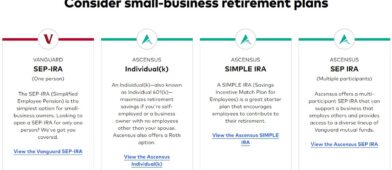The most basic purpose of any annuity is to provide a steady income in the future. Like most financial products, annuities have expanded in recent years and come in various flavors.
A multi-year guaranteed annuity (MYGA) provides that income stream but does it in a way that is generally more conservative than other annuity types. You might think of an MYGA as the CD version of annuities.
This article will explain how MYGAs work, including tax treatment, pros and cons, and how they compare to other investment vehicles.
Table of Contents
What is an MYGA and How Does it Work?
What does MYGA stand for?
MYGA stands for Multi-Year Guaranteed Annuity.
Like all annuities, an MYGA is an investment contract with an insurance company. You turn your funds over to the insurance company in exchange for a future stream of income. Annuities can be a preferred source of future income because, unlike self-directed retirement accounts, they provide guaranteed minimum income levels for a specific period.
An MYGA will provide interest income for a term ranging from three to ten years. By investing money with the insurance company, you’re giving it time to build value. This is known as the accumulation period.
You will begin receiving income from the annuity at a predetermined date. You can receive distributions as interest only or a combination of principal and interest.
MYGAs are renewable. You can renew the contract at the end of the accumulation period, though the interest rate paid on the annuity may change based on prevailing rates.
As is typical with annuities, you’ll likely be responsible for surrender charges if you make a withdrawal before the end of the accumulation period. Penalty amounts can run between 1% and 10% – insurance companies usually structure surrender charges on a sliding scale, with lower penalties each year.
Be aware that interest paid and surrender fees vary from company to company. You’ll need to shop between insurance companies to determine which company will provide the most advantageous mix of the two.
The Tax Consequences of MYGAs
One of the most significant advantages of annuities, including MYGAs, is that the income they earn accumulates on a tax-deferred basis – much the way retirement plans work, except that contributions to an annuity are not tax-deductible (unless made within a retirement plan).
This gives you the benefit of retaining 100% of the income earned within the annuity while the plan builds up. And that will result in a larger plan balance by the end of the accumulation phase.
The interest income earned on the annuity will only become taxable upon withdrawal. However, unlike retirement plans, withdrawals of principal will not be taxable since they were never tax deductible.
MYGA Pros & Cons
Pros:
- MYGAs are more conservative than other annuity investments and therefore safer.
- MYGAs provide tax deferral of interest income during the accumulation phase. That will enable you to get the full benefit of compounding of interest.
- There are no limits on how much you can contribute to an annuity. That means you can use an MYGA to supplement other retirement savings if you do not have a plan at work or have exceeded allowable retirement contribution amounts.
- MYGAs can provide a steady stream of income for a specific amount of time, either in the early years of retirement when you don’t want to rely on withdrawals from regular retirement plans or even later in retirement as a strategy to avoid outliving your money.
Cons:
- MYGAs are conservative investments that may not provide yields as high as other investments or annuity types.
- There are surrender charges if you want to withdraw funds from the annuity before the end of the accumulation phase.
- Though they behave like CDs, MYGAs are not covered by FDIC insurance. That’s because they’re not issued by banks but by insurance companies. However, insurance company failures on annuities are extremely rare and typically covered by state guarantee provisions.
- Annuities have fees that can reduce your interest rate return. Be sure you’re aware of all fees associated with your contract.
MYGAs vs. CDs
Since MYGAs are much like CDs, why not just invest in a CD instead of an annuity?
There may be times when a certificate of deposit is the better choice. But MYGAs have the advantage of tax deferral of interest income, which is not the case with CDs. Instead, interest paid on CDs is taxable in the year earned. Even if you invest in a five-year CD, you’ll be required to pay tax on the annual interest earned.
An MYGA will generate no tax consequences during the accumulation phase, giving you the benefit of greater compounding of earnings.
And if you’re worried about surrender charges with the MYGA, CDs have their equivalent with early withdrawal penalties. If you withdraw funds from a CD early, you’ll pay an early withdrawal penalty equal to a predetermined amount of interest.
MYGAs vs. Other Types of Annuities
As mentioned earlier, MYGAs are on the more conservative end of the annuity scale. Annuities tied to the performance of equities are likely to produce higher returns on your investment, especially if it’s a long-term commitment. However, equity-based annuities are also at higher risk. If you’re taking an MYGA, you’re likely looking for a more conservative annuity type.
If you like investing your money in annuities, compared to self-directed investments, like retirement plans, you can consider diversifying annuity types. For example, you can invest a certain amount in an MYGA while investing other funds in equity-based annuities that have the potential to earn greater returns.
The annuity most comparable to an MYGA is traditional fixed annuities. But this type of annuity will guarantee the interest rate for only a few years. For example, if the annuity contract is for ten years, the interest rate may be guaranteed for only five years.
MYGAs guarantee the interest rate for the full duration of the annuity contract. If that contract term is also ten years, you can expect the interest rate to remain fixed.
Should You Purchase an MYGA?
Though MYGAs have certain definite advantages, like tax deferral of investment income, you should always be careful when investing in annuities. An annuity is a contract with an insurance company and lacks the qualities of self-directed investments, like IRAs or CDs.
Once you turn your money over to the insurance company, you’ll no longer have a hand in how the funds are invested.
As contracts, annuities can contain dozens of provisions, as well as fees. The combination can affect your ability to withdraw funds from the annuity early. For those reasons, consult with a trusted financial advisor before investing any funds in an annuity.
That said, annuities have evolved to become trusted investment vehicles, especially in recent years as they’ve been made more user-friendly. And there’s no doubt they fill certain very specific niches.
The biggest advantage annuities provide, including the MYGA, is acting as a supplement for retirement savings. Whether you save through an employer-sponsored retirement plan or an IRA, the IRS limits how much money you can set aside.
But annuities enjoy the same tax-deferred income status as retirement plans. And since there are no limits on the contributions you can make, they can be an excellent way to increase your retirement savings over and above retirement plans.
Finally, annuities fill another important role. Many people who are quite successful in accumulating funds for retirement are not as certain about managing them once retirement arrives. Since an annuity is managed by an insurance company, with regular distributions, it can act as a traditionally defined benefit pension plan in an era when those plans have become extremely rare.



